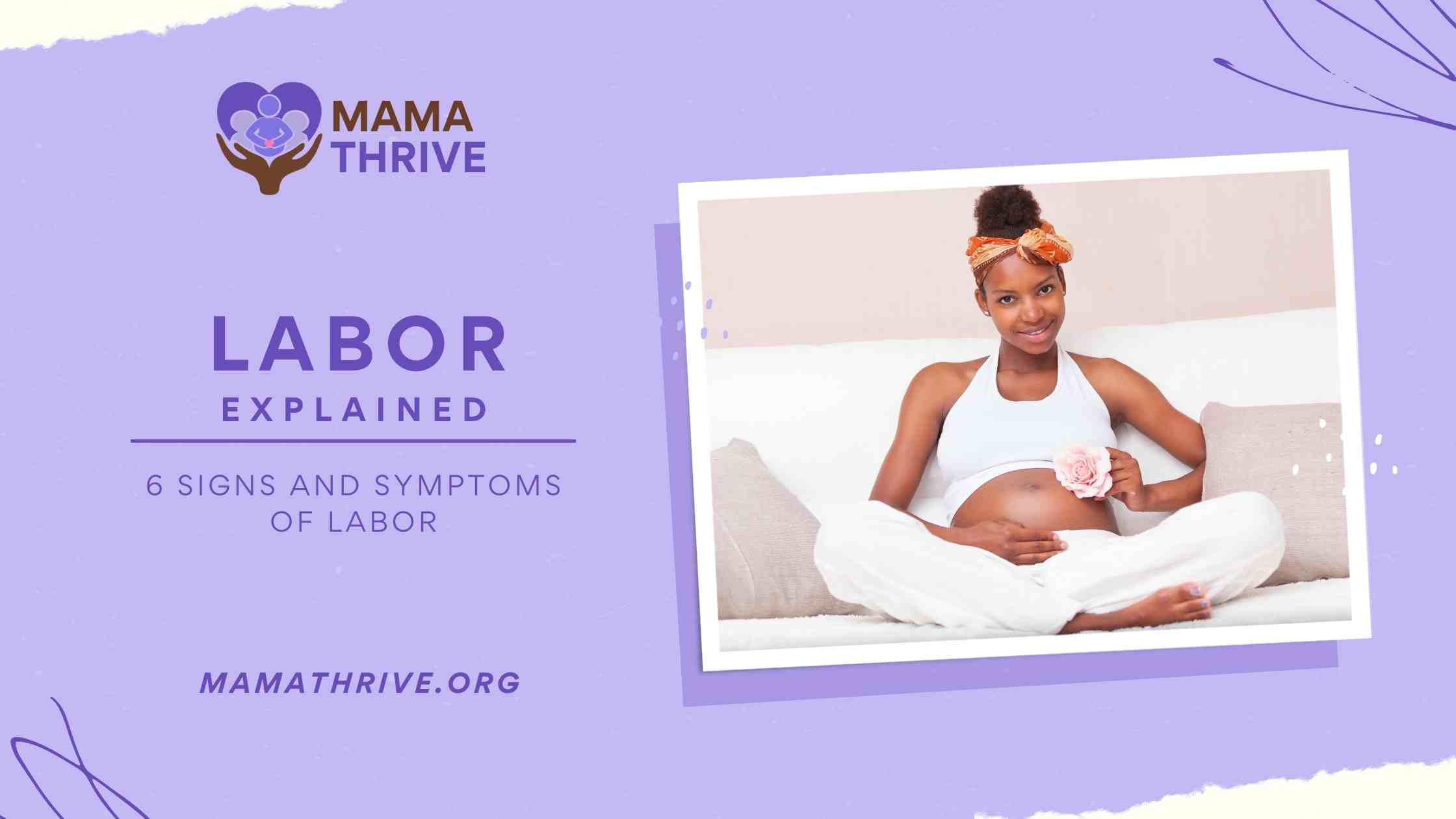Labor is the process of giving birth to a baby. It is a normal and natural process in a pregnant woman’s body. Labor can be an exciting and overwhelming time, and expectant mothers must know the labor symptoms to prepare for the big event.
While each pregnancy and delivery is different, there are certain common symptoms of labor worth being aware of before your baby arrives. From Braxton Hicks’s contractions to breaking the water sac and more, read on for the six key indicators that labor may be starting soon!
- Contractions
Contractions are sure symptoms of labor. As your baby prepares to make their grand entrance, you’ll want to be on the lookout for these telling symptoms of labor! Contractions are strong, rhythmic muscle contractions that cause the walls of your uterus to tighten and relax. They often feel pressure or cramping in the lower abdomen or back, which can become increasingly painful as labor progresses. The frequency, strength, and duration of contractions will get more intense as labor reaches its climax- giving you the signal it is time for you to meet your bundle of joy!
- Change in vaginal discharge
As labor rapidly approaches, many women experience an expected yet noteworthy change in their vaginal discharge. Moving from a thicker, creamier consistency to one that is more mucus-like, the discharge can contain small streaks of blood and has acquired the title of the “bloody show.”
Besides being normal, the bloody show indicates that labor will happen very soon. So if you’re preparing for your little bundle’s imminent arrival – don’t be too alarmed; it’s just nature’s way of nudging you closer!
- Loss of the mucus plug
The mucus plug is a fascinating piece of the female reproductive puzzle. It’s hard to imagine how the body can prepare for labor, but the mucus plug plays an essential role. When a woman becomes pregnant, her cervix seals itself off with this thick, sticky substance to protect both mother and baby from foreign microorganisms that could cause harm.
As labor approaches, the cervix begins to dilate, and eventually, this protective wall of mucus may be completely expelled – sometimes in one piece and sometimes in multiple pieces – sending a signal to all that labor is truly on its way. Despite being slimy and not particularly glamorous, it’s a sight worth seeing.
- Water breaking
After months of anticipation and preparation, the moment finally arrives – the water breaking! This event can be described as a rupture in the amniotic sac surrounding the baby in the womb – one of the sure symptoms of labor. The water breaking can occur as either a trickle or a large gush, depending on each woman’s circumstances. Whatever form it takes marks an exciting milestone on any mother-to-be’s journey toward childbirth.
- Low back pain
When a pregnant woman is about to give birth, lower back pain is one of the most common symptoms of labor. The pain may range from a dull ache to a sharp sensation that radiates down the lower back into the buttocks and occasionally legs. This pain results from increased pressure on the muscles and ligaments in the back due to the tightening of the uterus while it contracts to move the baby downwards toward delivery.
For many women, identifying this type of low back pain as an early labor symptom can provide them with peace of mind knowing that their time for childbirth is drawing near.
- Change in fetal movement
As the time nears for the long-awaited birth of your new bundle of joy, you may notice a sudden decrease in activity within the womb. You may worry that something is wrong – but don’t fret! This is one of the common symptoms of labor. The decreased movement is caused by limited room in the womb for your baby to wriggle and roll around.
If you find that there has been a large change in fetal movements, it could indicate that labor is just on the horizon! Keeping track of your little one’s movements throughout pregnancy will help to alert you if any changes occur during the final weeks.
Get Prenatal Care For You and Your Baby At Mama Thrive
Knowing the early labor symptoms can help you prepare for when the baby is ready to enter their grand entrance. If you are unsure whether or not you are in labor, it is always best to err on the side of caution and give your care provider a call. The last thing you want is to be caught off guard and end up at the hospital without knowing what to expect.
At Mama Thrive, we offer comprehensive prenatal care for you and your growing baby. We provide education on everything from nutrition during pregnancy to breastfeeding after the baby arrives. Our goal is to help mamas have a healthy and thriving pregnancy journey. Contact us today to learn more about our services or schedule an appointment.





